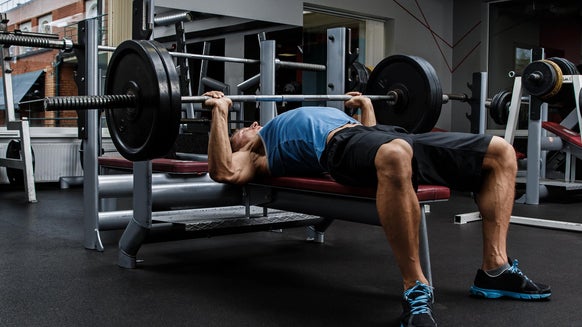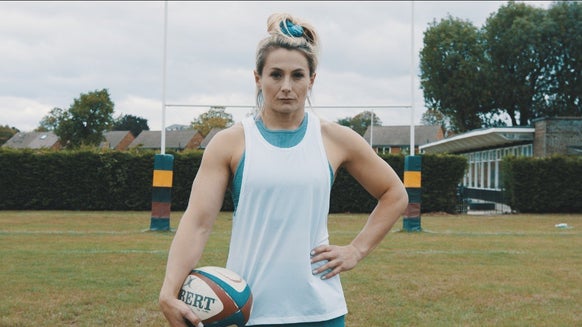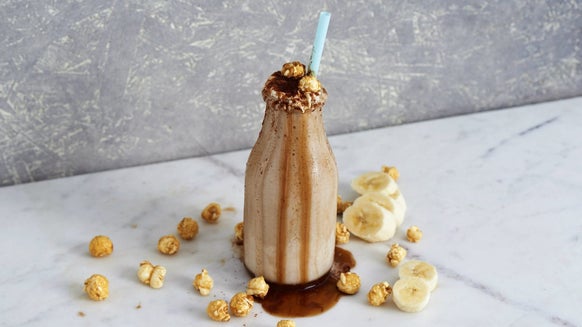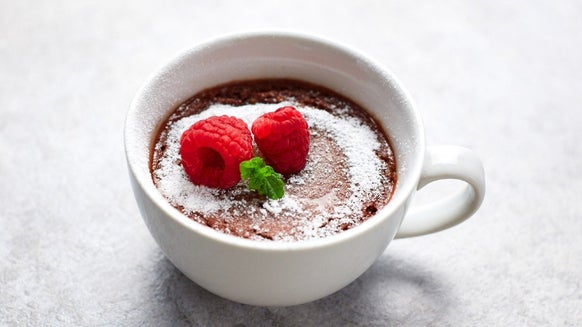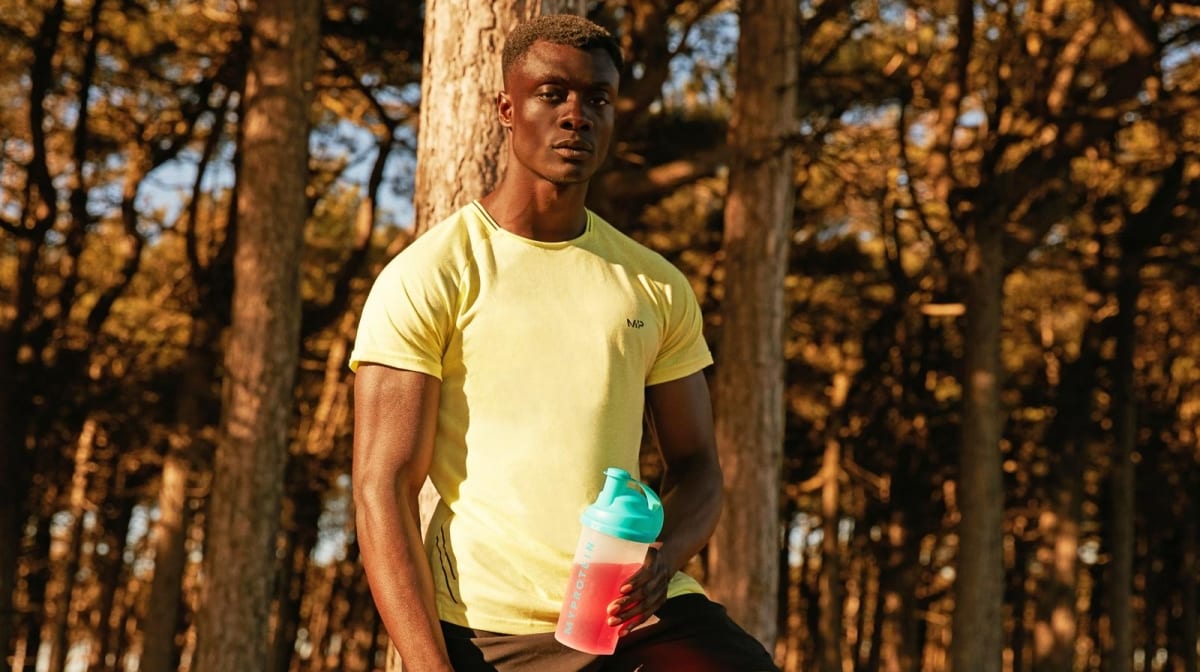
Caffeine is a powerful supplement to give an explosive boost of energy to your workout — known to increase endurance, reps, strength and recovery.1,2,3,4 But, if you find you need an extra boost of energy to take your training up a level, it might be time to change up your pre-workout supplementation. While it can be tempting to up your number of scoops, firstly, you should always stick to the recommended dosage, and second, there’s a way you can safely reset your caffeine tolerance. Enter, caffeine cycling.

Pre-Workout Supplements & Performance
Pre-workout supplements can help you perform harder and for longer — giving you the edge to build a better body or peak your athletic performance. Most pre-workout supplements contain caffeine, which has been shown to boast serious ergogenic benefits like a boost to exercise endurance, extra reps, bigger strength gains, and improved muscle recovery.1,2,3,4
Caffeine Tolerance & Cycling
Caffeine triggers an adrenaline rush — the fight-or-flight response that causes muscles to contract and become ready for action. With chronic consumption, the adrenal glands begin to burn out and fatigue, along with a host of changes that blunt the body’s usual response.
To preserve those coveted stimulatory effects of your favourite pre-workout, sports scientists widely recommend caffeine cycling to renew your tolerance.5 Cycling caffeine is simply a brief period where you’ll stop consuming caffeine (‘cycling off’) – typically for around 2 weeks, which research has shown is an adequate amount of time to reduce your tolerance, and feel the effects of caffeine once again.
THE Pump
Forget caffeine, THE Pump does just what it says on the tin, without any added caffeine. Coming in capsule and powder form, this caffeine-free pre-workout contains a number of optimally-dosed active ingredients to help reduce fatigue, aid in blood flow and oxygen transport, and peak your performance like never before.6,7
The pinnacle of this pre-workout is the patented VASO6 that’s been clinically proven to increase blood flow.7 This improves oxygen transport in the body to give your muscles what they need most. In fact, studies have shown that while 7g of Arginine only results in 5% vasodilation, 300mg of VASO6 can give you up for 50% vasodilation.8,9 If you’re training in the evenings and still want to make the most of your workout without caffeine, then VASO6 is what you really need to feel THE Pump.

We’ve also added vitamin C to the mix which can help to reduce tiredness and fatigue, as well as iron and thiamine to support circulation and the cardiovascular system.6,10,11 Basically, you’re in for an awesome workout every time.
You can also choose the way to take it that suits you best. Mix the blend with water and sip away on tangy Orange Mango, or refreshing Rainbow Candy. If you’re always on the move, then simply take a capsule to get you ready for a heavy session.
Caffeine-Free Pre-Workout
If you don’t want to miss out on the benefits that pre-workout delivers, our Caffeine-Free Pre-Workout acts as your perfect caffeine-cycling buddy, and can also be a better choice for late-night workout sessions to ensure a good night’s sleep. Caffeine-Free Pre-Workout contains citrulline malate, beta-alanine, and arginine alpha-ketoglutarate (just AAKG for short), which have been shown to boost explosive muscle strength and power, increase aerobic endurance, and reduce muscle fatigue.12,13,14,15,16

How to Caffeine Cycle
Simply stop consuming caffeine for 14 days to diminish your caffeine tolerance. To preserve ergogenic effects, consume THE Pump or Caffeine-Free Pre-Workout while cycling off your regular pre-workout shake. After this period, your caffeine tolerance is likely to be drastically reduced. - Repeat as needed to retain all the performance benefits that pre-workout shakes deliver.
Take Home Message
Pre-workout supplements can boost your performance – pushing you to your peak and allowing you to train harder for longer. If you feel like your workout needs an extra energy boost, don’t just up your dose – it’s time to consider caffeine cycling.

Jennifer Blow is our UKVRN Registered Associate Nutritionist – the UK’s register of competent and qualified nutrition professionals. She has a Bachelor’s of Science in Nutritional Science and a Master’s of Science by Research in Nutrition, and now specialises in the use of sports supplements for health and fitness, underpinned by evidence-based research.
Jennifer has been quoted or mentioned as a nutritionist in major online publications including Vogue, Elle, and Grazia, for her expertise in nutritional science for exercise and healthy living.
Her experience spans from working with the NHS on dietary intervention trials, to specific scientific research into omega-3 fatty acid supplementation and also the effect of fast foods on health, which she has presented at the annual Nutrition Society Conference. Jennifer is involved in many continuing professional development events to ensure her practise remains at the highest level. Find out more about Jennifer’s experience here.
In her spare time, Jennifer loves hill walking and cycling, and in her posts you’ll see that she loves proving healthy eating doesn’t mean a lifetime of hunger.
1. Carr AJ, Gore CJ, Dawson B. Induced alkalosis and caffeine supplementation: effects on 2,000-m rowing performance. Int J Sport Nutr Exerc Metab. (2011)
2. Glaister M, et al. Caffeine supplementation and multiple sprint running performance. Med Sci Sports Exerc. (2008)
3. Ganio MS, et al. Effect of ambient temperature on caffeine ergogenicity during endurance exercise. Eur J Appl Physiol. (2011)
4. Loureiro, Laís Monteiro Rodrigues, Caio Eduardo Gonçalves Reis, and Teresa Helena Macedo da Costa. Effects of Coffee Components on Muscle Glycogen Recovery: A Systematic Review. International journal of sport nutrition and exercise metabolism.(2018)
5. Patel, K. (2018). Do I need to caffeine cycle?.Available: https://examine.com/nutrition/do-i-need-to-cycle-caffeine/
6. EFSA Panel on Dietetic Products, Nutrition and Allergies (NDA). (2010). Scientific Opinion on the substantiation of health claims related to vitamin C and reduction of tiredness and fatigue (ID 139, 2622), contribution to normal psychological functions (ID 140), regeneration of the reduced form of vitamin E (ID 202), contribution to normal energy‐yielding metabolism (ID 2334, 3196), maintenance of the normal function of the immune system (ID 4321) and protection of DNA, proteins and lipids from oxidative damage (ID 3331) pursuant to Article 13 (1) of Regulation (EC) No 1924 …. EFSA Journal, 8(10), 1815.
7. Kim, J. A., Formoso, G., Li, Y., Potenza, M. A., Marasciulo, F. L., Montagnani, M., & Quon, M. J. (2007). Epigallocatechin gallate, a green tea polyphenol, mediates NO-dependent vasodilation using signaling pathways in vascular endothelium requiring reactive oxygen species and Fyn.Journal of Biological Chemistry, 282(18), 13736-13745.
8. SCHLAICH, M. P., JACOBI, J., Stefan, J. O. H. N., DELLES, C., FLEISCHMANN, I., & SCHMIEDER, R. E. (2000). Is l-arginine infusion an adequate tool to assess endothelium-dependent vasodilation of the human renal vasculature?. Clinical Science, 99(4), 293-302.
9. Fitzpatrick, D. F. (2004). S. Patent No. 6,706,756. Washington, DC: U.S. Patent and Trademark Office.
10. DiNicolantonio, J. J., Liu, J., & O’Keefe, J. H. (2018). Thiamine and cardiovascular disease: a literature review. Progress in cardiovascular diseases, 61(1), 27-32.
11. EFSA Panel on Dietetic Products, Nutrition and Allergies (NDA). (2014). Scientific Opinion on the substantiation of a health claim related to iron and contribution to normal formation of haemoglobin and red blood cells pursuant to Article 14 of Regulation (EC) No 1924/2006. EFSA Journal, 12(1), 3515.
12. Sureda A, et al. L-citrulline-malate influence over branched chain amino acid utilization during exercise. Eur J Appl Physiol. (2010)
13. Baguet A, et al. Important role of muscle carnosine in rowing performance. J Appl Physiol. (2010)
14. Sweeney KM, et al. The effect of beta-alanine supplementation on power performance during repeated sprint activity. J Strength Cond Res. (2010)
15. Sale C, et al. Effect of β-alanine plus sodium bicarbonate on high-intensity cycling capacity. Med Sci Sports Exerc. (2011)
16. Bailey, Stephen J., Paul G. Winyard, Anni Vanhatalo, Jamie R. Blackwell, Fred J. DiMenna, Daryl P. Wilkerson, and Andrew M. Jones. Acute L-arginine supplementation reduces the O2 cost of moderate-intensity exercise and enhances high-intensity exercise tolerance. Journal of Applied Physiology109, no. 5 (2010): 1394-1403.

